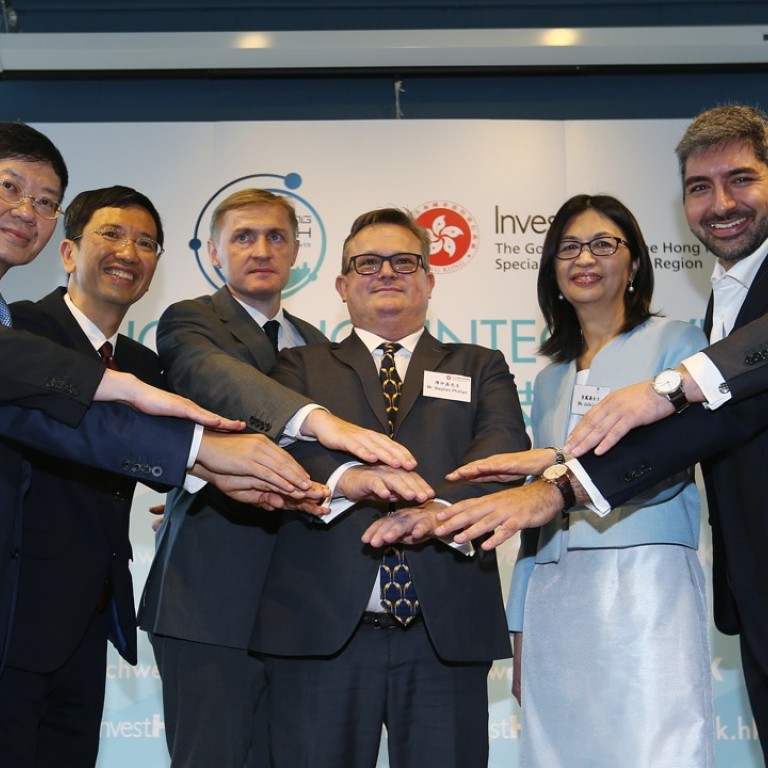
Hong Kong regulators to push for greater clarity in fintech market guidance to help companies develop
City looks to burnish credentials as an international hub for financial innovation as it stages second annual FinTech Week this October
Hong Kong’s securities, banking and insurance regulators are looking to offer greater guidance on financial technology innovation in the city, following recent developments in the adoption of blockchain, artificial intelligence and so-called initial coin offerings (ICO).
That would provide the local economy’s growing number of fintech start-ups and more established enterprises with increased clarity on how to pursue initiatives driven by those technologies, according to the regulators.
Their plans took centre stage on Thursday at a press briefing for the city’s second annual FinTech Week, which will be held from October 23 to 27 at the Hong Kong Convention and Exhibition Centre in Wan Chai.
“Financial innovation is changing the way in which securities products and services are being delivered to investors,” said Julia Leung Fung-yee, the executive director for the intermediaries division at the Securities and Futures Commission (SFC).
Leung added, however, that the rush to adopt advanced fintech solutions in the market may need to be tempered by further guidance.
Such a situation played out this week when the SFC put companies planning ICOs on notice that any such digital fundraising activity may fall under Hong Kong’s securities code, requiring them to be registered with the regulator.
“We are concerned about an increase in the use of ICOs to raise funds in Hong Kong and elsewhere,” said Leung.
The original SFC statement on ICOs came a day after the People’s Bank of China banned fundraising schemes using ICOs after finding that 90 per cent of those launched on the mainland were fraudulent.
In an ICO, a company’s newly created cryptocurrencies – called tokens – are used to represent a percentage of ownership in a business. That is similar to how shares in an initial public offering signify a stake in a company.
The difference lies in that an ICO is unregulated and bypasses the rigid capital-raising process required by financial institutions.
Henri Arslanian, a member of the temporary board of the FinTech Association of Hong Kong, said it was important for fintech start-ups to seek professional advice before undertaking an ICO.
“Unfortunately, there are a lot of bad apples who are trying to take advantage of the situation,” Arslanian said.
Further guidance for blockchain, the highly touted technology behind cryptocurrency bitcoin, will be provided by the Hong Kong Monetary Authority (HKMA) during the FinTech Week.
Li Shu-pui, executive director at the HKMA, said a new white paper on blockchain technology and cross-border collaboration on trade finance will be unveiled during that event.
“The theme this year is collaboration,” Li said. “If you really want to build a fintech ecosystem, collaboration is more important than competition.”
In March this year, the HKMA joined forces with professional services group Deloitte and five of the city’s top banks to develop a proof-of-concept distributed ledger platform for trade finance using blockchain technology.
The project was designed to demonstrate the feasibility of using blockchain to reduce the risk of fraudulent activity, while increasing business transparency, operational efficiency and productivity in trade finance.
The HKMA defines blockchain as a technology that supports networks of databases which enable participants to create, disseminate and store information in a secure and efficient manner. That set-up eliminates the need for a central authority and brings greater transparency for regulatory reporting.

